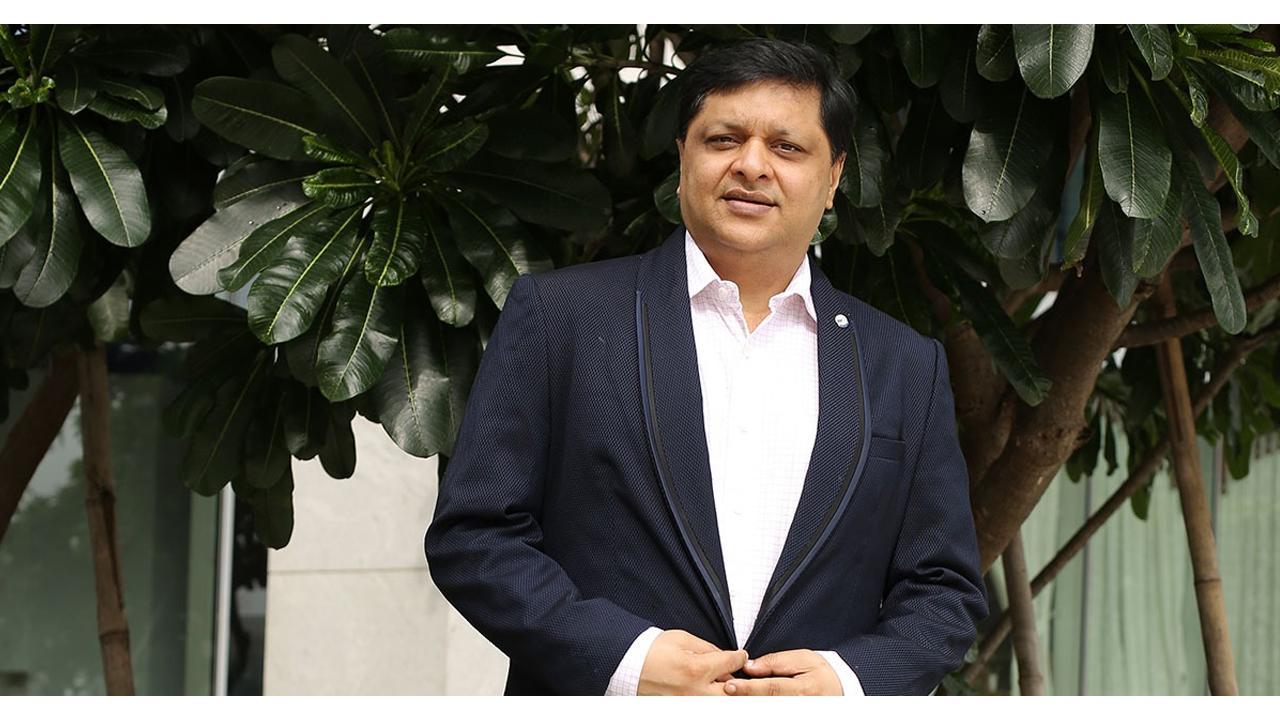Mr. Rishi Agarwal is a great philanthropist who is involved in various charitable works. He has been undertaking plantation of trees every year. He has undertaken 5000 tree plantations over the period in his life.

Rishi Raj Agarwal
“Water Crusader of India” who has highlighted the importance of saving water to avoid DAY ZERO in top 30 cities of India.
ADVERTISEMENT
India only has 4% of the world's freshwater resources despite a population of over 1.3 billion people. "With high population growth in India and the world almost 400 million people living in 100 cities of international importance across the world are at immediate risk of a water crisis, as these cities face water scarcity, flooding, drying out reservoirs in several regions, lack of basic infrastructure and groundwater depletion and contamination has made all top cities in India water-stressed," says Rishi Raj Agrawal.
SaveWaterSaveCity.com and an NGO initiated by Rishi Raj Agarwal has taken an uphill task to create awareness among all people the importance of water in human life. Mr. Agarwal has taken an uphill task to save 30 top cities of India and 50 top cities of the world through his various campaign and has approached respective state govt to make water free of cost available for its citizen.
Mr. Rishi Agarwal is a great philanthropist who is involved in various charitable works. He has been undertaking plantation of trees every year. He has undertaken 5000 tree plantations over the period in his life. He has planted more than 10,000 trees everywhere, 5000 at a single go with the help of Rotary Clubs at Kutch, Gujarat.
He has also undertaken several blood donations camps. He is highly religious and has constructed temple, which is a Community Development Centre for Rameshwara village in Kutch.
Water scarcity is a consequence of allowing too much water to be consumed relative to the renewable, affordable supply of water. When human consumption of water begins to approach the limits of the available supply, communities, businesses and ecosystems face great risk of water shortages with damaging consequences
More than 90 percent of water consumption in water scarce regions goes to irrigated agriculture. Excessive withdrawals of ground water can lead to salt water intrusion, a subtle environmental impact with long-lasting effects. These areas are usually associated with large population centers or agriculture, where water use is high.
According to reports, by 2050, India’s total water demand will increase 32 per cent from now. Delhi has over-extraction of groundwater and low rainwater retention, Bangalore is facing water shortage and can provide only up to 60% of the city needs. Chennai main reservoirs run dry, groundwater levels low and Tankers provide water supply.
Rishi Agarwalla says "Water scarcity is an issue that will greatly affect the whole globe. There's nothing more essential than water to life. And if the water isn't used sparingly and with precautions, it will surely lead to a devastating future for our kids and future generation.
Since the population is increasing, the need for drinking water will increase too. Providing free water to communities and an initiative to develop urban watersheds and wetlands to bolster freshwater conservation and are critical for maintaining the water balance of a city, flood cushioning, micro-climate regulation and protecting its biodiversity. Its high time people realize every drop matters."
“In recent decades humans have pumped trillions of gallons out of those underground reservoirs, and due to over-exploitation of groundwater, failure to recharge aquifers and reduction in catchment capacities due to uncontrolled urbanization are all causes for the precarious tilt in the water balance. Protecting water at its source can be cheaper and more efficient than treating it after it has already been polluted” says Rishi Raj Agarwal.
We as Humans should understand that the need of the hour is that every individual uses water economically and judiciously. Save water and cities before it becomes a big problem.
 Subscribe today by clicking the link and stay updated with the latest news!" Click here!
Subscribe today by clicking the link and stay updated with the latest news!" Click here!






